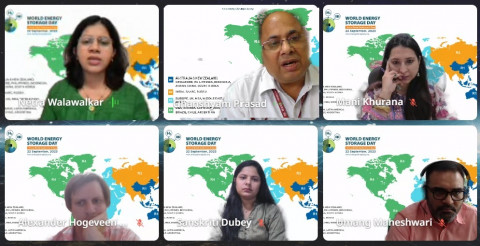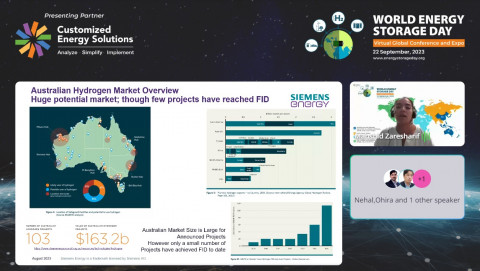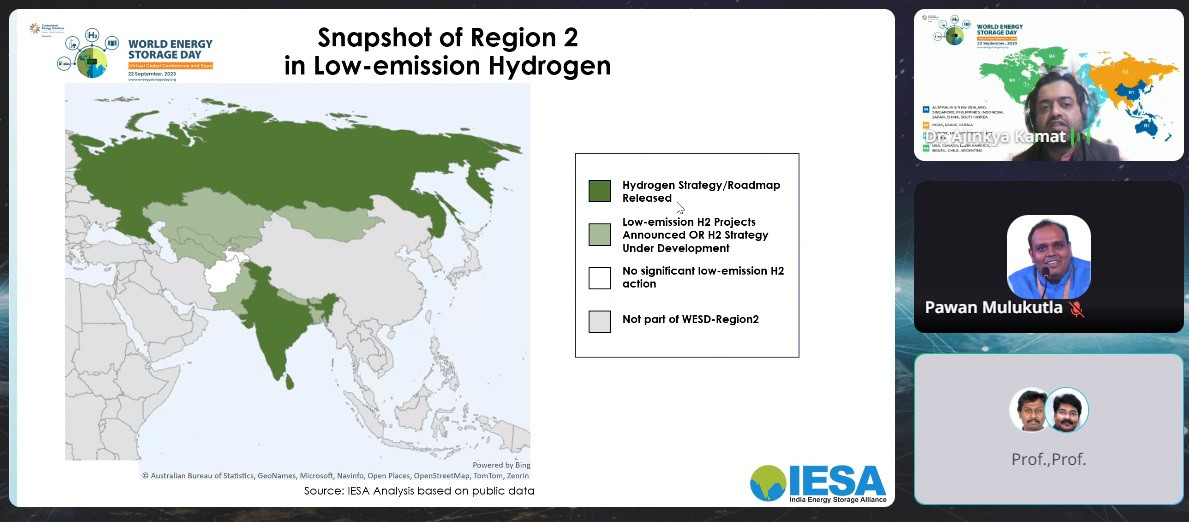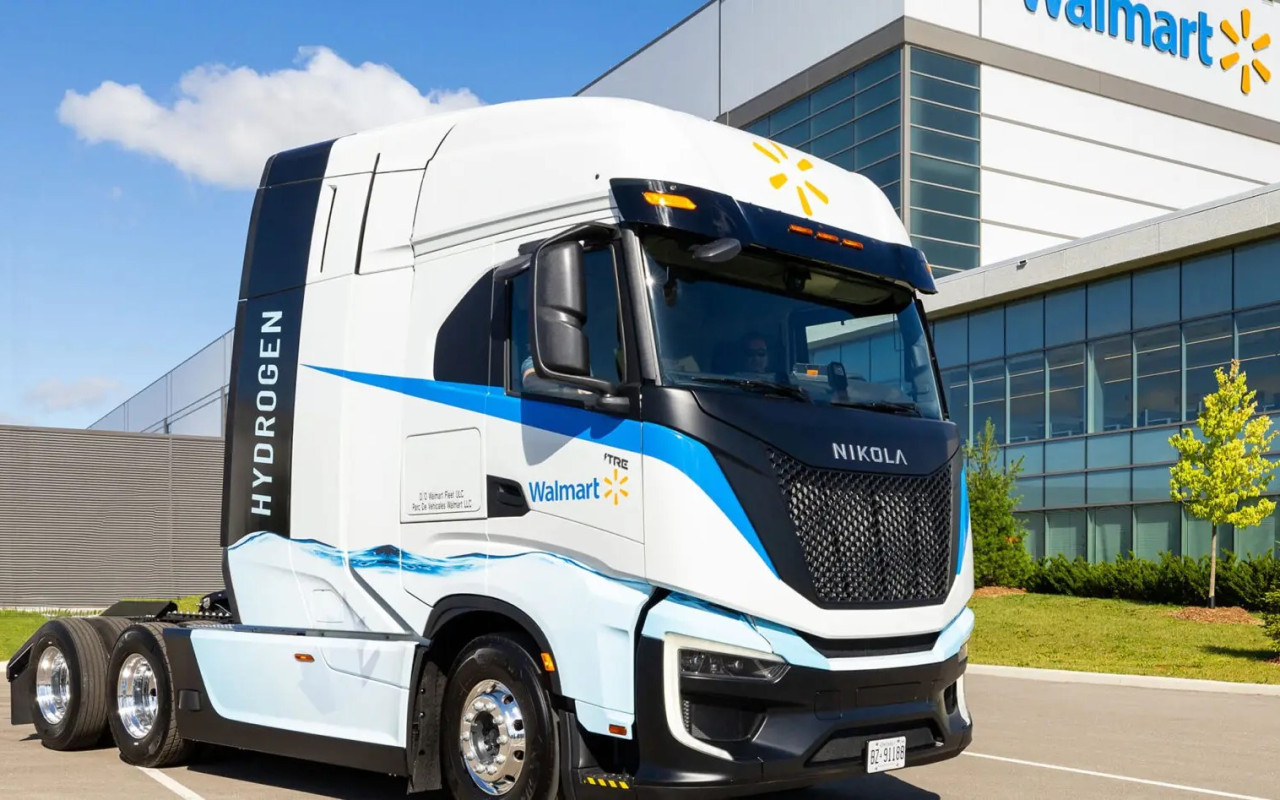WESD 2023: India’s GH2 journey has only just begun, electrolysers need manufacturing fillip
India needs manufacturing policies for electrolysers alone, otherwise its hydrogen ambitions might falter, the WESD discussions on green hydrogen revealed.
Panellists pointed out that the country has big plans with hydrogen, but there is a vast gap between these ambitions and the country's manufacturing capacities. Enabling large-scale manufacturing is imperative to bridging this gap, and the way to go about this would be to ramp-up R&D activities and proactively support short-term offtake through subsidy, etc.
The session was moderated by Pawan Mulukutla, Director for Integrated Transport, Electric Mobility and Hydrogen at WRI India. The panel consisted of Dr. Ranjit Pai, Scientist 'E'/Director, Technology Mission Division, DST, Government of India, Dr. Ajinkya Kamat, Innovation Fellow, India Energy Storage Alliance (IESA), Dr. K. Selvaraj, Senior Principal Scientist, Catalysis and Inorganic Chemistry Division, CSIR – National Chemical Laboratory and Prof. Aravind Kumar Chandiran, Associate Professor, Department of Chemical Engineering & Head, Centre for Photo and Electrochemical Energy Sciences (C-PEC), IIT Madras.

WESD 2023: India hits everybody's sweet spot in energy storage
Ranjith Krishna Pai introduced Hydrogen Valleys and took attendees through the purpose of the valleys, the challenges faced, etc.
Dr. K. Selvaraj outlined that the way to understand the energy system transition from carbon to hydrogen. His summation: "Take water, reduce it and you get hydrogen. Oxidize that and you get water."
He took the audience through electrolyser technologies (alkaline, PEM, AEM etc) and the cost of setting up hydrogen systems, and the painpoint of having to largely import stacks from China in the absence of local manufacturing capacity.
Prof. Chandiran focused on numbers, using NITI Aayog data to explain how hydrogen can help the country decarbonize its energy and industrial operations, ultimately releasing substantially fewer emissions in the process, valuable considerations for a country determined to become Net Zero by 2070.
He forecast that India could decarbonize activities by about 20 percent by switching to green hydrogen from conventional grey and black hydrogen. The IIT Madras, for this reason, is looking to set up a hydrogen valley innovation cluster in collaboration with industry.
He concluded by saying green hydrogen had a much greater decarbonization potential than we estimated and there was a need for more pilot projects to gain experience in the fuel.
Dr Kamat introduced attendees to the different colors of hydrogen based on production process (green, blue, grey, pink etc), while cautioning that the industry's color coding was conventional, not technical. Hence, one type of hydrogen could be referred to by another name in other nations.
He took the audience through the hydrogen value chain and the sectors / industries that must be considered when building such a production/ supply chain, and followed it up with a snapshot of global hydrogen policies for demand creation, long-term policy signals and R&D and innovation attempts. Finally, he zoomed into the Indian policy scene with an explanation of the different hydrogen policies adopted by India's states.
Dr. Kamat concluded with the G20's voluntary principles on hydrogen, which stress national standards and harmonized approach, resilient and diversified supply chains, technological innovation, investments and infrastructure and knowledge sharing.

























